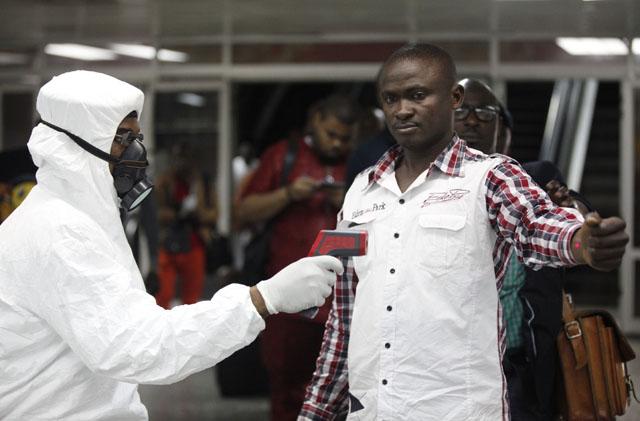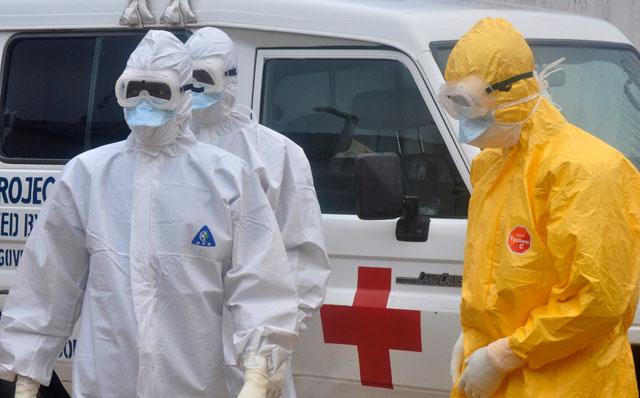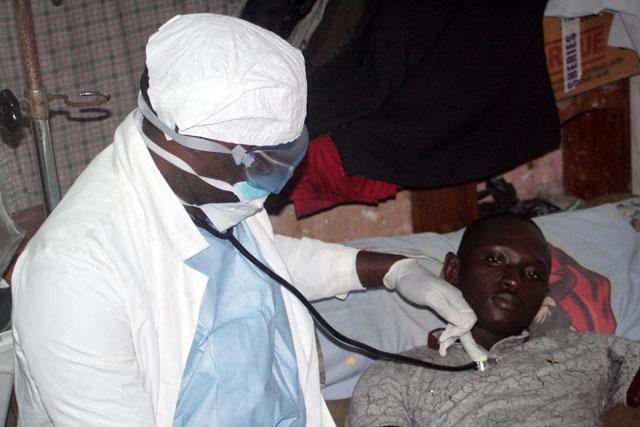You are here
WHO concerned but ‘reasonably confident’ on international Ebola spread
By Reuters - Oct 23,2014 - Last updated at Oct 23,2014

GENEVA/LONDON — The World Health Organisation (WHO) said on Thursday it was "reasonably confident" that the Ebola virus plaguing three West African countries had not spread into neighbouring states.
Asked whether countries such as Guinea Bissau and Ivory Coast might have cases of the disease crossing their borders without knowing about or reporting them, WHO Assistant Director General Keiji Fukuda said he considered that unlikely.
"We are reasonably confident right now we are not seeing widespread transmission into neighbouring countries," Fukuda told reporters in a briefing. "It remains a concern...[but] right now I think we are not seeing it."
"We will keep looking for further spread of infection, but we simply haven't seen it," he added.
The WHO's emergency committee, advising on Ebola, said earlier on Thursday that screening people leaving Liberia, Sierra Leone and Guinea remained critical for reducing the spread of the disease.
At a minimum, exit screening should consist of "a questionnaire, a temperature measurement and, if fever is discovered, an assessment of the risk that the fever is caused by Ebola," the committee said.
Last week, the WHO said it would send teams of experts to Mali and Ivory Coast, two of the countries at highest risk, to check their preparedness.
The economic damage of a major outbreak in Ivory Coast would be felt around the world, since it and next-door Ghana produce about 60 per cent of the world's cocoa beans.
Although Senegal and Nigeria managed to contain the disease after it was imported by travellers, Ebola is still raging in the three countries at the heart of the epidemic, the worst Ebola outbreak on record.
At least 4,877 people are known to have died, but the true toll may be three times as much.
The response to the disease is now based on a "70-70-60 plan" to get 70 per cent of patients in isolation and 70 per cent of bodies buries safely within a 60-day period ending on December 1.
But the elements needed to achieve that — bed spaces, treatment centres, laboratories, dead-body-management teams and volunteers — are still far short of what is required.
The WHO originally appealed for 12,000 local staff and 750 foreign experts, but it has raised those targets to 20,000 and 1,000 respectively. Fukuda said there were only 600 foreign experts so far.
"It has been terrifically difficult to get enough health workers, both domestic and international healthcare workers, this continues to be one of the major challenges," Fukuda said.
Related Articles
Nigeria became the latest country to declare a national emergency over the deadly Ebola virus on Friday, as the World Health Organisation (WHO) called the epidemic that has claimed nearly 1,000 lives a global health crisis.
Health workers across Liberia went on strike on Monday to demand danger money to care for the sick at the heart of a raging Ebola epidemic that has already killed dozens of their colleagues.
The World Health Organisation (WHO) said Thursday it was increasing efforts to help several African countries fight Ebola if the deadly virus arrives on their soil.














